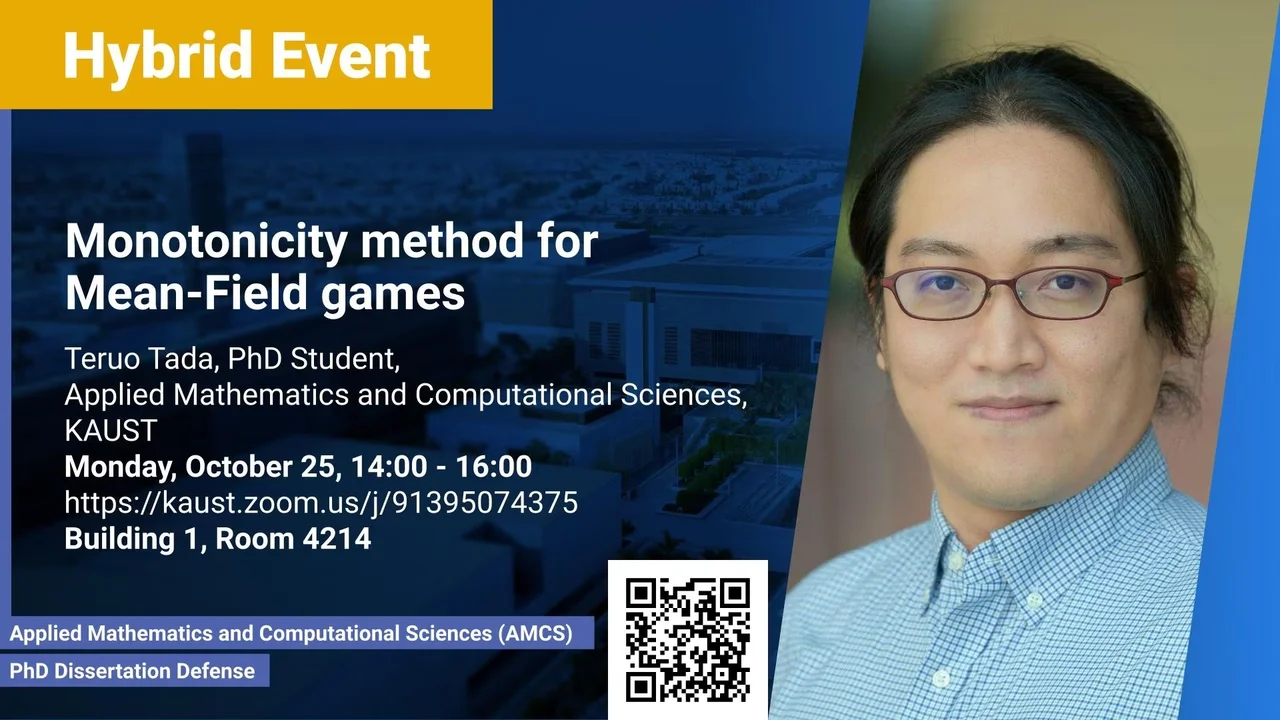
Monotonicity method for Mean-Field games
During my Ph.D. program, we have studied mean-field games (MFGs). MFGs model games with large populations of rational agents. The agents search for their optimal strategies and trajectories to minimize an individual cost, which depends on the statistical distribution of the population. Although it is quite hard to consider the systems of large populations in the numerical analysis, we can expect to consider the average effect given by the populations because the influence of each agent should be small.
Overview
Abstract
During my Ph.D. program, we have studied mean-field games (MFGs). MFGs model games with large populations of rational agents. The agents search for their optimal strategies and trajectories to minimize an individual cost, which depends on the statistical distribution of the population. Although it is quite hard to consider the systems of large populations in the numerical analysis, we can expect to consider the average effect given by the populations because the influence of each agent should be small. Actually, it is possible to take the limit as the number of agents goes to infinity. Then, we obtain the coupling of two equations instead of the large systems and this coupling is called a MFG. In MFGs, we often consider the coupling of a Hamilton–Jacobi equation
and a Fokker–Planck equation. The first equation is related to the cost of agents corresponding to the value function. The second equation is related to the trajectory of the populations. Although there are many papers for each equation, we cannot apply them
to MFGs directly because of the coupling. Therefore, solving MFGs is challenging.
In my thesis, we discuss a method for MFGs through the monotone structure. The monotonicity is important not only for the uniqueness of solutions to MFGs but for the existence of solutions. Through the monotonicity of MFGs with Minty’s method, we can
construct a weak solution to problems. In particular, we applied this method to other cases such as first-order stationary MFGs with Dirichlet boundary conditions and timedependent MFGs with degenerate diffusions and both local and non-local effects. In both
cases, we proved the existence of weak solutions to MFGs. Another project in my thesis is stationary MFGs with hypoelliptic operators. The models are based on stochastic control problems with the Stratonovich integration. The hypoelliptic operators are intermediate between degenerate operators and uniform elliptic operators. Although the hypoelliptic operators are degenerate, we verified the existence and the uniqueness of solutions to hypoelliptic MFGs.
Brief Biography
Teruo Tada received the BSc in Education department, Major Mathematics, and Master degrees in Mathematics department from Waseda University. He joined King Abdullah University of Science and Technology as PhD student in Applied Mathematics and Computer Science in 2016. In his Ph.D. program, he studied partial differential equations (PDEs). In particular, he is interested in mean-field games.